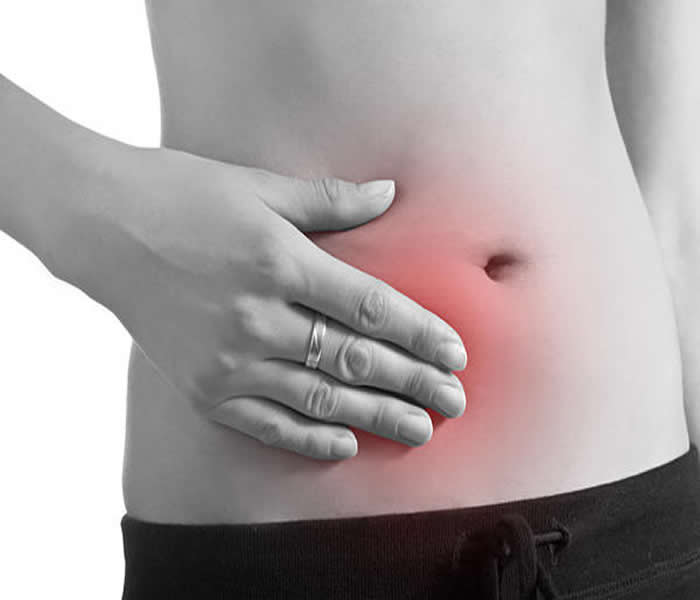Appendicitis
What Is Appendicitis?
Appendicitis is a serious medical condition in which the appendix becomes inflamed and painful it may be acute or chronic.
Appendicitis starts with a pain in the abdomen it comes and come after a while i.e. on and off, Within hours, the pain travels to your lower right-hand side, where the appendix is usually found, and becomes constant and severe.
It is a medical emergency that requires prompt surgery to remove the appendix. If you do not treat it on time, an inflamed appendix will eventually burst, or perforate, spilling infectious materials into the abdominal cavity which is the most dangerous part of it, this is a medical emergency.

If the infected appendix leaks instead of ruptures, it can form an abscess. These confines the infection to a small walled off area. However, an abscess can still be dangerous.
Causes of Appendicitis
Experts said there are two likely causes of appendicitis, they are:
Infection: A stomach infection may have found its way to the appendix.
Obstruction: is often due to an accumulation of fecal matter. A hard piece of stool may have got trapped in the appendix. The bacteria in the trapped stool may then have infected the appendix, obstruction could be partial or complete.
Symptoms/Signs of Appendicitis
At first the pain can be felt anywhere in the stomach area, but later, as it intensifies, its location becomes more defined in the lower right-hand side of the abdomen. Symptoms of appendicitis include:
- Abdominal swelling
- Constipation
- Diarrhea
- Feeling sick
- Inability to pass gas
- Low grade fever
- Lower right side abdominal pain
- Loss of appetite
- Nausea
- A sense you might feel better after passing stool
- Painful coughing or sneezing
- Pain around the navel (bellybutton)
- Progressively worsening pain
- Vomiting
How to Prevent Appendicitis Symptoms from Worsening
When toxic products accumulate in your body, this may lead to inflammation and irritation of the appendix. In some cases, further infection may be caused by the presence of germs in your intestinal tract. You can use natural cures to treat the pain associated with appendix safely and on a budget, but you should also talk to your doctor. Here are some natural prevention methods.
1. Mind Your Diet: Experts have found a significant correlation between diets low in fiber and appendicitis. Diets that are high in fiber may be gentle on the digestive system. To get enough soluble fiber, try eating fruits and vegetables. To get non-soluble fiber, eat whole grains, wheat bread, cucumber, celery, zucchini, and carrots. By following a proper, well-balanced diet, you can also help reduce your risk of appendicitis. Also, make sure to drink enough fluid so your body stays hydrated.
2. Water: No matter the stomach problem, water is a great treatment option and appendicitis is no exception. Warm water, in particular, is helpful, so try drinking it for three days in a row to see results. As a bonus, water will also help cleanse your bowels. You can also drink juice made using fresh fruits or apply a hot compress on your abdomen.
3. Fenugreek & Milk: It can help to drink tea made from fenugreek seeds. This will also serve the benefit of preventing mucus and pus from forming in excessive quantities within your appendix. You can also drink this fenugreek seed tea regularly to help with your overall health.
4. Ginger: Ginger is another effective cure at relieving appendix pain and it can be used with garlic. You can opt for either the raw or powdered form to relieve the pain as well as the swelling in your appendix. Another option is to combine ginger with turmeric as a way to reduce pain as well as inflammation. Ginger is particularly useful if vomiting is one of your symptoms of appendicitis and you can add salt to the ginger pieces if you want.
5. Mint & Basil: Try consuming a bit of mint with water as well. An easy way to do this is by adding two or three drops of essence of mint to water and drinking this every three or four hours. You can also try using basil as the leaves have been proven helpful. Try making an herbal decoction of basil leaves to help relieve your appendix pain and any fever associated with it.
6. Green Gram & Buttermilk: Green gram can help with acute appendix pain by providing relief as well as treating an infection. To use this remedy, soak a few handfuls of green gram in water, letting them sit overnight. Then have a teaspoon of the solution three times each day. Buttermilk can also help in the case of chronic appendix pain. Consider adding a pinch of salt to your buttermilk and drinking it three or four times daily.

How to diagnose Appendicitis
The diagnosis of appendicitis begins with a thorough history and physical examination.
When a patients is having the above symptoms with an elevated temperature,your doctor might suspect appendicitis and further in his investigation, which can include:
- Physical examination to assess your pain: Your doctor may apply gentle pressure on the painful area.
- Blood test - to determine whether there is an infection.
- A urine test - this will identify a kidney or bladder infection.
- An MRI, CT or ultrasound scan
There is no way to prevent appendicitis. However, appendicitis is less common in people who eat foods high in fiber, such as fresh fruits and vegetables.
Treatment for Appendicitis
Surgery to remove the appendix, which is called an appendectomy, is the standard treatment for appendicitis. Appendicitis treatment usually involves surgery to remove the inflamed appendix. If you have a ruptured abscess or appendix, surgery may be necessary right away, before surgery you may be given a dose of antibiotics to prevent infection.
Appendectomy can be performed as open surgery using one abdominal incision about 5 to 10 cm long (laparotomy). Or the surgery can be done through a few small abdominal incisions (laparoscopic surgery). During a laparoscopic appendectomy, the surgeon inserts special surgical tools and a video camera into your abdomen to remove your appendix.
How to Prevent Appendicitis without surgery
The study finds that in uncomplicated cases, most patients with an inflamed appendix can be treated successfully with antibiotics instead of having to undergo surgery. “Antibiotic therapy may be an option for some patients,”
Appendicitis Home Remedies/Home Cure

1. Castor Oil: Castor oil is an effective home remedy for appendicitis. A castor oil pack can help relieve the blockage and reduce inflammation, and castor oil taken orally helps treat constipation and improves bowel movements.
Prepare a castor oil pack by folding a large flannel cloth into layers and pouring 2 tablespoons of castor oil on it.
Lie down on an old towel and put the flannel cloth on your abdomen.
Repeat this remedy 3 times a week for 2 to 3 months.
2. Garlic: Garlic has anti-inflammatory therapeutic potential that aids in the treatment of appendicitis. It helps reduce the inflammation as well as pain.
Eat 2 to 3 raw garlic cloves on an empty stomach daily. You can also use garlic in your cooking.
Another option is to take garlic capsules, but only after consulting a doctor.
3. Ginger: Due to its anti-inflammatory properties, ginger also helps treat appendicitis. It can reduce pain and inflammation, while also helping relieve the common symptoms of vomiting and nausea. Drink ginger tea 2 or 3 times daily. To prepare ginger tea, simmer 1 teaspoon of grated ginger or ginger slices in a cup of boiling water for 5 to 10 minutes.
Massage your lower abdomen with ginger oil a few times daily.
You can also take ginger capsules, but only after consulting your doctor.
4. Fenugreek Seeds: Fenugreek seeds are effective in the treatment of appendicitis. These seeds prevent the accumulation of intestinal waste and excess mucus, thus reducing the possibility of the problem becoming severe. They also help reduce pain. Add 2 teaspoons of fenugreek seeds to 1 cup of water. Bring to a boil, then simmer on low heat for 10 to 15 minutes. Strain and have this decoction when lukewarm once daily.
Include fenugreek seeds in your cooking to control pain and inflammation.
5. Lemon: Lemon is also very beneficial in treating appendicitis. The natural citrus juice in lemon helps relieve pain and prevent indigestion and constipation. In addition, the vitamin C in lemon boosts the immune system to prevent infection.
Extract fresh juice from 1 lemon.
Mix it with an equal quantity of raw honey.
Take this mixture a few times a day.
Repeat daily for a few weeks.
6. Basil
If the appendicitis patient has a low-grade fever, basil is an effective herb for bringing down their temperature. Moreover, basil is a good remedy for indigestion and intestinal gas.
To reduce a fever, boil a handful of basil leaves and 1 teaspoon of grated ginger in 1 cup of water until the solution is reduced by half. Strain and add a little honey. Drink this tea 2 times a day for a couple of days.
To get rid of intestinal gas, mix 5 crushed basil leaves, ¼ teaspoon of sea salt and a little black pepper powder in 2 to 3 tablespoons of plain yogurt. Consume it twice daily.
You can also have 3 to 4 raw basil leaves daily to help control appendicitis symptoms.
Complications of Appendicitis
Complications of appendectomy include wound infection and abscess.
The most frequent complication of appendicitis is perforation. Perforation of the appendix can lead to a peri-appendiceal abscess (a collection of infected pus) or diffuse peritonitis (infection of the entire lining of the abdomen and the pelvis).This is known as peritonitis.
Peritonitis
If your appendix bursts, it releases bacteria into other parts of the body. This can cause a condition called peritonitis if the infection spreads to the peritoneum, the thin layer of tissue that lines the inside of the abdomen.




